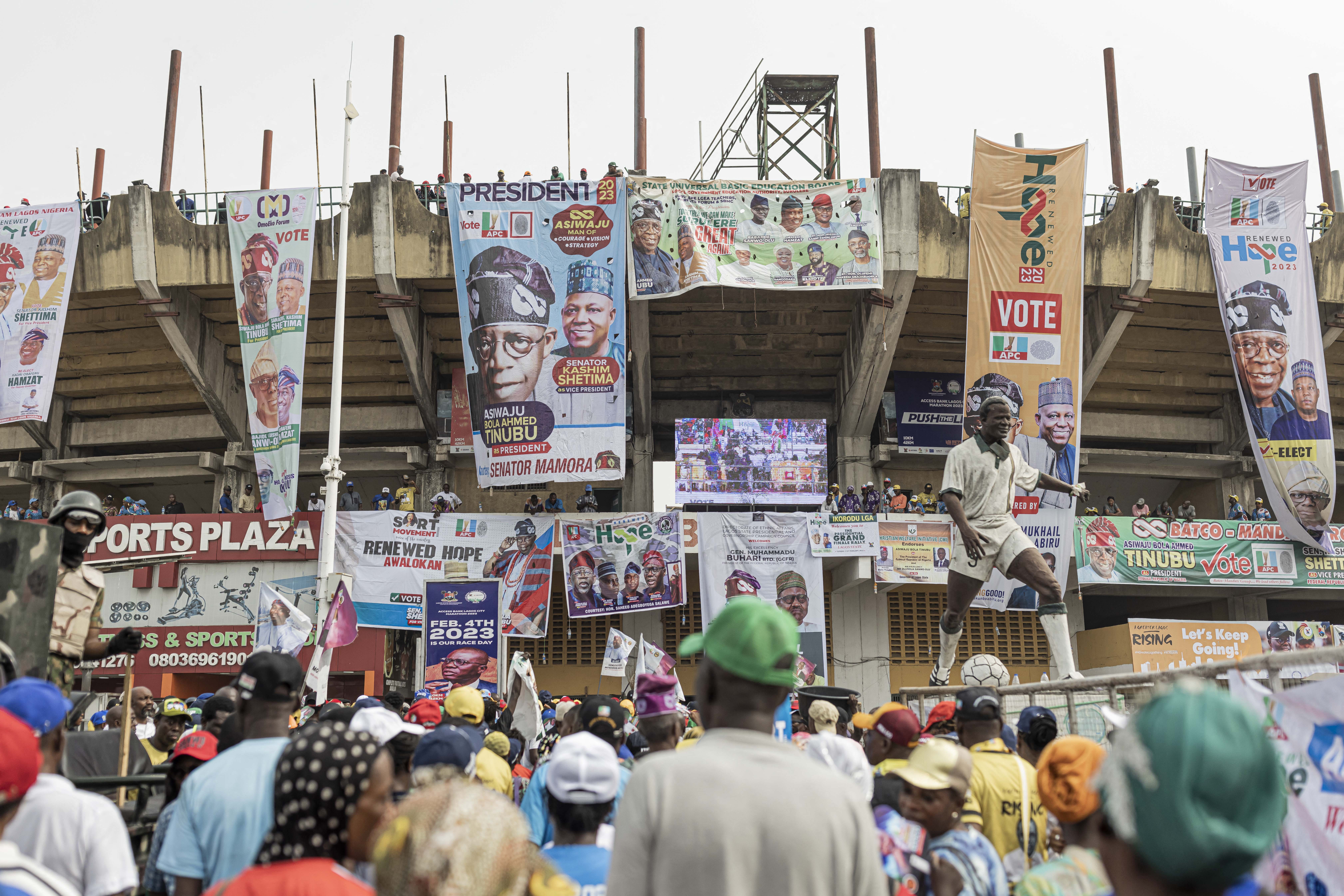Bola Ahmed Tinubu: Challenges ahead for Nigeria’s new president
The controversies surrounding the February election also highlighted various societal issues in Nigeria.

Nigeria’s All Progressive Congress (APC) ruling party presidential candidate Bola Ahmed Tinubu on 20 July 2022. Photo: Kola Sulaimon/AFP
Bola Ahmed Tinubu – a member of the ruling All Progressives Congress – is set to be inaugurated as Nigeria’s president on 29 May 2023.
Tinubu emerged victorious with 36% of the vote – an outcome which reflects the widespread disenchantment in Nigeria.
President Bola Ahmed Tinubu
His election campaign was marred with controversies; his party had a contentious record in federal government over the last eight years, and there are concerns about his eligibility for office.
To add to the rising tension, Tinubu also takes charge at a time when Nigeria is facing significant challenges.
In addition, the fallout of this campaign exacerbated ethnic and religious tensions.
Election controversies
One of biggest issues surrounding the election was the electoral commission’s failure to collate ballots transparently.
This sparked a debate about Tinubu’s eligibility for office.
And it also didn’t help that states reported interreference with the voting process.

Reports of armed thugs disrupting the voting process and stealing ballot boxes made headlines back in February.
In the image below, taken on 17 February 2023, an officer can be seen next to an election banner, where violence flared up earlier in the day.
Protesters attacked bank ATMs and blocked roads in various Nigerian cities as anger spilled on the streets over a scarcity of cash.

These attacks along with the lack of transparency and the electoral commission’s non-compliance with the 2022 Electoral Act raised doubt towards the elicitability of the vote.
Societal conflicts
The controversies surrounding the February election also highlighted various societal issues in Nigeria, such as ethnic tensions, religious fissures, and generational divides.
The Igbo community had hope for the first Igbo president to take office since Nnamdi Azikiwe was appointed in the mid 1960s.
Other tensions were also highlighted as many of Nigeria’s youth viewed the election outcome as a lost opportunity for a generational shift in the presidency.

Meanwhile, Tinubu’s decision to appoint a fellow Muslim as his vice president defied informal convention that rotates between Muslims and Christians.
Balance between Muslims and Christians
Since Nigeria is a country with significant religious divide, the convention states that a Muslim president will have a Christian vice president, and vice versa.
While this convention isn’t written into law, it’s generally been observed as a way to unite both the Muslim and Christian communities in Nigeria.
Tinubu’s choice to go against this convention could lead to discontent among the Christian population, who may feel underrepresented in government.
READ: More than 100 dead in Nigeria clashes, thousands displaced
An uphill task
President Tinubu’s inauguration today marks a new chapter for Nigeria, but it’s too early to say how all of this play out.
Regardless of his eligibility to hold office, Tinubu will have his work cut out for him if he wants to avoid a turbulent administration.
There are multiple divisions to mend on a national level, requiring several necessary political and economic reforms.
In short, he would have to:
• Unite the nation, irrespective of political, ethnic and religious affiliations.
• Reform the electoral process by fully implementing the Electoral Act of 2022.
• Push economic reforms by finding a balance between fuel subsidies and social justice.
• Foster reconciliation by establishing a Truth and Reconciliation Commission
• Engage the international community and build partnerships with the US, EU, UK, China and Economic Community of West African States (ECOWAS).
For more news your way
Download our app and read this and other great stories on the move. Available for Android and iOS.









!['If ANC wants to survive, it must show in practical actions', Mbeki says [VIDEO]](https://media.citizen.co.za/wp-content/uploads/2024/12/Thabo-Mbeki-300x200.jpg)